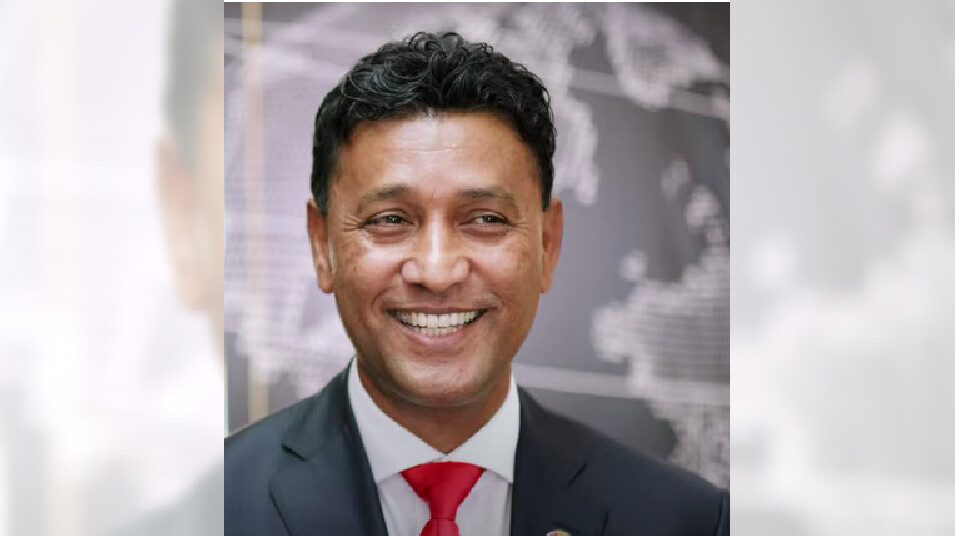
Phony MIT physicist bilked investors out of $24.6 million with Irvine tech firm, SEC alleges
An Irvine man bilked more than 50 investors out of $26.4 million with phony academic credentials, a fanciful rags-to-riches story and a promise to usher in “the next age of humanity” with cutting-edge nanotechnologies that could cure cancer, detect counterfeiting and provide an antidote to snake venom, according to federal regulators.
Faiz M. Chowdhury, 54, who owns Irvine-based DTI Holdings Inc. and Quantum Age Corp., swindled venture capitalists in the U.S. and Asia by falsely claiming to be a Massachusetts Institute of Technology-trained physicist and intellectual prodigy, states a U.S. Securities Exchange Commission lawsuit filed in federal court.
From May 2018 to December 2022, Chowdhury treated DTI and QAC accounts as his “personal piggy bank,” the SEC said. He allegedly spent investment funds totaling $19.8 million to support an extravagant lifestyle that included international travel, gambling, luxury items for himself and his family, ATM cash withdrawals and wire transfers to various entities he controlled.
Remaining investments totaling $6.6 million funded rent, payroll, equipment, insurance, and other expenses for Chowdhury’s two companies, according to the lawsuit filed in September.
The SEC is seeking permanent injunctions and undisclosed monetary penalties against Chowdhury for violating antifraud provisions of the federal securities law.
In a filing with U.S. District Court earlier this month, Chowdhury’s attorney, Andrew Duffy, disputed the government’s claims. “We deny the allegations made by the SEC and are in the process of defending against those actions,” he said.
‘Tormented’ by false allegations
Chowdhury, who has dual U.S.-Bangladesh citizenship, said in a phone interview he is “tormented” by the false SEC allegations and blames the misunderstanding on a disgruntled investor with a vendetta.
“There is a lot of wrong information in the complaint that will get disproved very soon in court,” he said. “We are real and are developing products that are going to market. My vision is to create a hunger and pollution-free world. That doesn’t happen overnight.”
Chowdhury said he came to the U.S. in 1997 to attend UC Berkeley, where he received a bachelor’s degree in electrical engineering and computer science. He added that while he doesn’t have a doctorate from MIT he has received a management certification from the prestigious university.
Chowdhury described himself as a visionary in the mold of Martin Luther King Jr., saying he dreams of using technology to provide equality for the Earth’s population by addressing poverty, hunger and pollution.
“I have been trying to do good things for good people,” he said. “I am doing everything I can to bring products to the marketplace that improve quality of life. I am a servant of humanity.”
Investors purportedly misled
Chowdhury allegedly touted DTI to investors as a holding company of cutting-edge technology businesses using graphene, a two-dimensional carbon material known for its excellent electrical conductivity and mechanical stability, to forge new advances in health, energy and transportation.
To bolster that claim, he concocted a tale stating that as a child in Bangladesh, village leaders identified him as a savant and the U.S. government later recruited him to work on a top-secret program to develop graphene for military and commercial applications, according to the SEC. Chowdhury denies ever working for the government.
Chowdhury told the Southern California News Group the village in Bangladesh where he grew up had no electricity or running water, which motivated him to develop technologies to address those problems.
The SEC lawsuit alleges Chowdhury also falsely claimed he served as a scientific adviser to President George W. Bush and later was an adviser and friend of the late Sen. John McCain, R-Arizona.
Chowdhury falsely represented to investors that he “pioneered scientific breakthroughs” at some of the nation’s most prestigious research centers, including the National Aeronautics and Space Administration, Oak Ridge National Laboratory, California Institute of Technology and the Johns Hopkins University Applied Physics Laboratory, the suit says.
He also informed investors he was the original inventor of graphene, but could not be named on any patent or given credit publicly due to the secrecy of his government work, according to the SEC.
Chowdhury denied claiming he discovered graphene, but acknowledged working with top scientists to develop the material as a cancer therapeutic.
‘I have enemies’
He blamed the misinformation about his background and companies on an angry investor trying to discredit him. “I have enemies,” he said. “One investor didn’t understand, got upset with me, and got the wrong idea.”
However, an investor, who declined to say how much money they lost, and asked not to be identified so as not to impede the SEC’s case, told the Southern California News Group that Chowdhury’s intentions are crystal clear.
“Faiz Chowdhury lacks a moral compass and has created a charming persona that possesses the ability to look directly at you and smile and lie at the same while telling you he is trying to help humanity with his very sensitive government background,” said the investor, who was persuaded to work with Chowdhury because graphene shows promise in biosciences. “He targeted people who were not investment savvy, but believed that technologies could solve many problems.”
The SEC alleges Chowdhury provided investors with wildly misleading financial projections forecasting astronomical revenues into the tens and even hundreds of millions of dollars.
To conceal his misappropriation of investor funds, Chowdhury maintained tight control of the finances at DTI and QAC and enlisted family members with little or no financial experience to help him, the SEC said.
By late 2019, some investors in DTI became disenchanted, complaining that Chowdhury had misled them, mismanaged their investments and failed to make any progress toward commercializing graphene technologies.
Cancer cure claims
As a result, Chowdhury created QAC to rebrand DTI and separate the growing number of disgruntled investors from his continued efforts to solicit new investors, according to the SEC.
Chowdhury unveiled QAC during a glitzy convention in Singapore on Aug. 23, 2019, ushering in the Quantum Age.
He vowed in a 42-minute YouTube video — replete with a model dubbed “Quantum Girl,” clad in a futuristic silver jumpsuit — that QAC would reduce human suffering, cure diseases and protect the environment.
“My eternal humans and my family, please accept me with your grace and embrace my presence because I am one of you,” Chowdhury said from a darkened stage inside a crowded banquet hall. “I may not look exactly like you, but I am as beautiful as you are because we all have the quantum red inside.”
In an Aug 12, 2021, video, Chowdhury further explained how the Quantum Age would lead to a sustainable world.
When some DTI investors who didn’t buy the Quantum Age mantra began demanding their money back, Chowdhury allegedly used some of the new investor funds raised by QAC to make Ponzi-like payments to prior DTI investors.
Sometimes he played on the emotions of some investors to gain their trust, according to the SEC.
In one instance, aware that the mother-in-law of an investor had recently died from cancer and that the issue was sensitive for him, Chowdhury allegedly went so far as to hold up a vile filled with a black liquid and falsely told the audience it contained a “cure for cancer,” the suit states, noting that neither DTI nor its affiliated companies discovered or even attempted to develop a cancer cure.
Chowdhury, who claims that he operated a successful laboratory in a 27,000-square-foot building in Irvine until it was forced to shut down in 2020 due to a lack of funding, said he is extremely close to marketing a cancer detection device that will revolutionize medicine.
“I am building this business to help the lives of many, many people,” he said.


